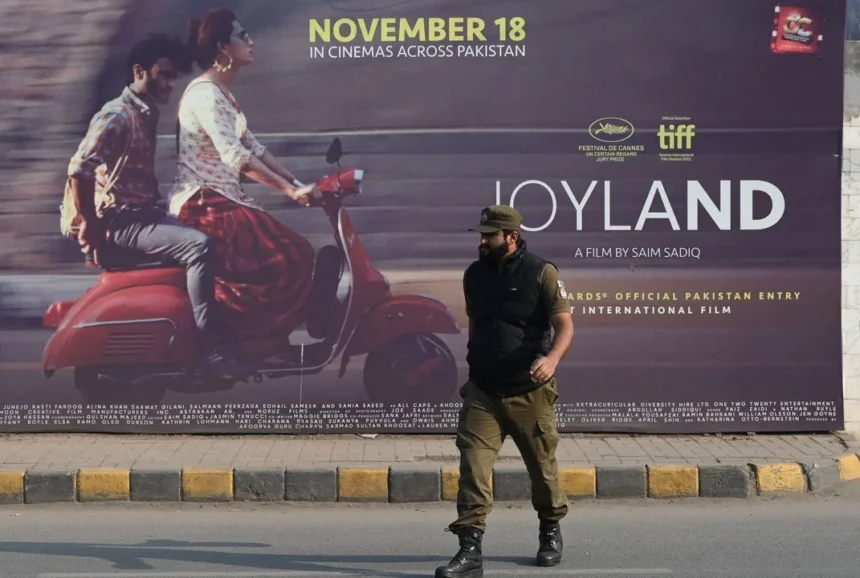In a ruling released on Friday, the Sindh High Court declared that transgender people are full-fledged Pakistani citizens with the same rights and privileges as everyone else. Their stories of hardship and kinship should also be given equal attention.
The division bench of the SHC, which was made up of Chief Justice Ahmed Ali M. Sheikh and Justice Yousuf Ali Sayeed, issued a thorough ruling on a case against the screening of the Pakistani feature film “Joyland,” stating that needless restriction curtails a society’s innovation and growth.
The judges dismissed the petition opposing Joyland’s screening in theatres, saying they were satisfied that Islam, as the big, universal religion it is, is powerful enough to resist a film depicting a completely fictional portrayal of a romance that humanises a transsexual character.
The judges expressed their optimism that Pakistani society would not fall apart as a result, notwithstanding its fragility. The court made the point that an individual cannot be permitted to overturn a censor’s judgement in a court case based on his personal moral convictions when a film has been certified for release after having passed through the censors, who have reviewed its content and given their approval.
The court ruled that it is not within the purview of Article 199 for it to decide morally whether to restrict a filmmaker’s right to free speech and opinion, which is protected by Article 19 of the Constitution.
The court noted that the default stance of the court under Article 199 should be one of completely protecting the fundamental right by giving as broad a reading to Article 19 as is practicable and, in the event that a constraint is applied by the board or any other authority that may be capable in that regard, assessing the rationality of that limitation strictly to guarantee that the same is acceptable in the tightest imaginable sense.
According to the court, it is not the court’s duty to ethically monitor the public by judging what should or should not be watched and to take on the function of creating and implementing a limitation in the lack of any restrictions imposed by the relevant quarter, whether it be the board or the provincial government.
The court ruled that needless restriction stifles a society’s ability to innovate and advance. The petitioner only attempted to demonstrate that the work’s concept and content violated the Constitution, the court noted, without pointing out any legal irregularity or certification procedure error.
It was noted that other from restricting his case to the degree that the film’s concept and plot violated Article 227 of the Constitution, the petitioner had not made any effort to demonstrate how any other provisions of the Constitution would be infringed by the screening of the movie.
In response to the question of whether the video in question denigrated Islam, its holy books, any particular religious figure or location, or otherwise featured any content that broke any laws, the court noted that the petitioner was unable to provide any examples of any transgressions.
The court noted that the petitioner admitted he had no first-hand experience with the issue because he had not seen the entire movie or even just a portion of it. The petitioner’s admission, the court remarked, aptly illustrates the shallowness of his arguments and the absurdity of his claim.
It claimed that because his fundamental rights have not been violated, the petitioner is also not adequately eligible to be considered a harmed person under Article 199. The petitioner had the right to make a personal decision, which he or she exercised by choosing not to watch the movie, but the petitioner cannot raise a personal grievance if a similar right is granted to others. The picture shows a romance between a married man and a transgender person, according to the petition signed by Moulvi Iqbal Haider, who asked that its screening be prohibited.












